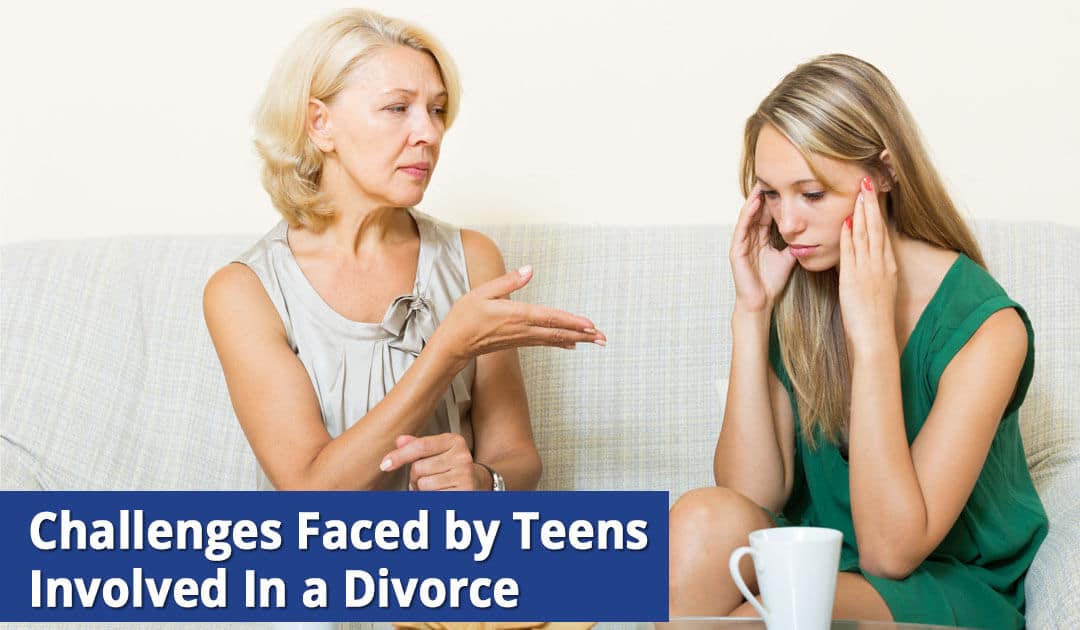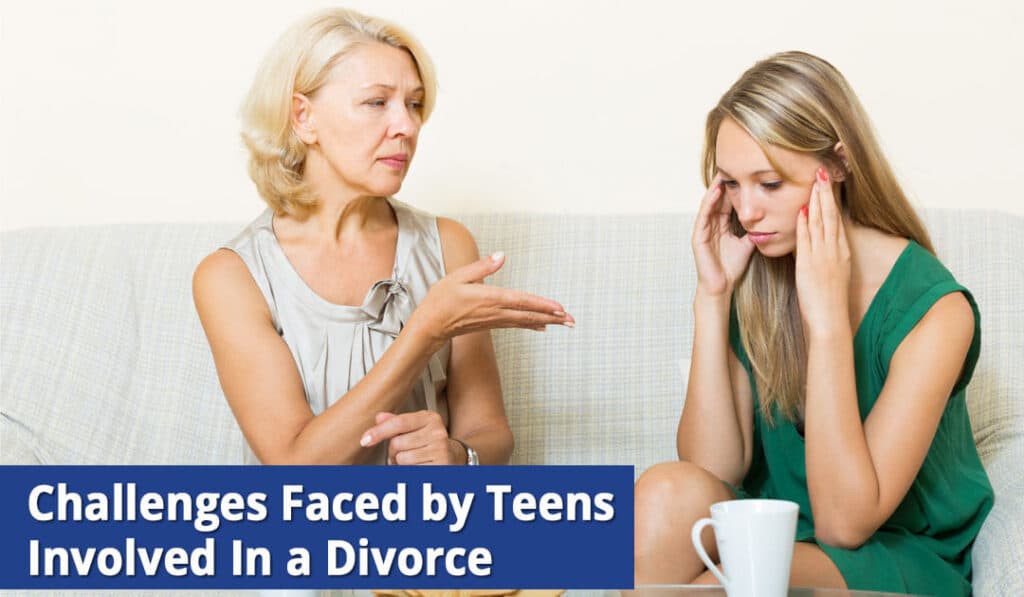Teens Face Different Issues Dealing with Parents’ Divorce

Divorce will impact children of any age going through the process of seeing their parents dissolve their marriage to each other. However, there are some unique challenges faced by older children and teens who may have more of an understanding of what divorce means than very young children. Here’s what to know about how a Long Island divorce can impact teens and how you can best support them during the dissolution process.
Mental Health Issues of Teens in Divorce
Depression and anxiety is more common among teens now than ever before. According to the Centers for Disease Control and Prevention (CDC), teens have markedly higher rates of anxiety and depression than younger children. At the time of their study, the CDC reported that:
- <0.5% of children ages 3-5 have depression
- ~1% of children ages 3-5 have anxiety
- <2% of children ages 6-11 have depression
- ~6% of children ages 6-11 have anxiety
- 6% of children ages 12-17 have depression
- ~11% of children ages 12-17 have anxiety
A BMC Psychiatry study reports that children with mental health issues are more likely to have the same or worsening conditions in adulthood. Comparing this information with what science already tells us about the impact of divorce on children, it’s easy to extrapolate that teens with divorced parents are much more likely to suffer than peers whose parents are not separated.
Declining Academic or Extracurricular Performance of Teens in Divorce
Teens preoccupied with thoughts of their parents’ divorce may begin to see their grades decline, or they may be less interested in extracurricular activities. This may become more pronounced if the teen develops anxiety, depression, or both. You may notice your child “zoning out” a lot or having difficulty paying attention or staying engaged with the here and now.
Strained Relationships with One or Both Parents After Learning of Divorce
A teen may blame one or both parents for the divorce, or they may know the real reason for the divorce and blame the at-fault parent (if there is one). Of course, the child may also simply assign fault to whomever they feel deserves it without evidence. It’s not uncommon for teens with separated parents to have a strained relationship with one or both of them; in fact, it may be less common for teens with separated parents to have perfectly healthy relationships with both parents and step-parents.
Changes In Sleeping Patterns During/After Divorce
After breaking the news of the divorce to your teen, you may notice changes in their sleeping patterns. For example, they may have difficulty falling or staying asleep and may not be able to rest very well at all. Or, they may be exhausted, lethargic, and want to sleep seemingly all the time. These issues can also be exacerbated if anxiety or depression is involved in the equation. Speak with your child’s doctor about sleep problems that don’t resolve with at-home treatment.
New or Worsening Defiance or Other Behavioral Issues During Divorce
Teens whose parents are divorcing and may be fighting over child custody or child support issues may begin to develop an opposition to authority figures. They may become defiant and refuse to listen to teachers, parents, or any other person in a position of authority over them. Children who were once very well behaved may become unpredictable once learning that their family as they knew it is dismantling.
When to Contact a Long Island Divorce Attorney
It’s important that you reach out for support as soon as you learn of your impending divorce. You don’t have to wait until the divorce is underway or even until you tell your spouse you want a divorce to get an attorney involved. Remember that the lawyer you hire is an advocate specifically for you and your children; not your ex-spouse. Contacting an attorney early on ensures you can provide the best possible support for your family when going through the difficult process of dissolving your marriage.
At Hornberger Verbitsky P.C., we have extensive experience representing divorcing parents with teen children and can help you navigate the challenges ahead. We can help connect you to community resources, counseling, and other post-divorce support networks for adults, teens, and children. Contact our New York divorce attorneys today to learn more by calling our office directly at 631-923-1910 or fill out the short form on this page.
SCHEDULE YOUR FREE CONSULTATION TODAY
Call 631-923-1910 or fill in the form below
Schedule your complimentary consultation and case evaluation with our experienced attorneys today. When you call, you’ll speak to our friendly Client Services Director, who will be able to answer your general questions and set up your appointment with an attorney who specializes in your unique case.
At your meeting, your attorney will describe the many options available and determine together which is the right solution for you. By the end of this meeting we’ll all understand how we can best help you to move forward.
No Cost or Obligation
There is no cost or obligation for this initial consultation. It is simply an opportunity for us to get to know each other, answer your questions and learn if Hornberger Verbitsky, P.C. is right the right law firm for you. Give us a call at 631-923-1910 or fill in the short form below to schedule your free consultation and case evaluation.
All Fields Are Required
